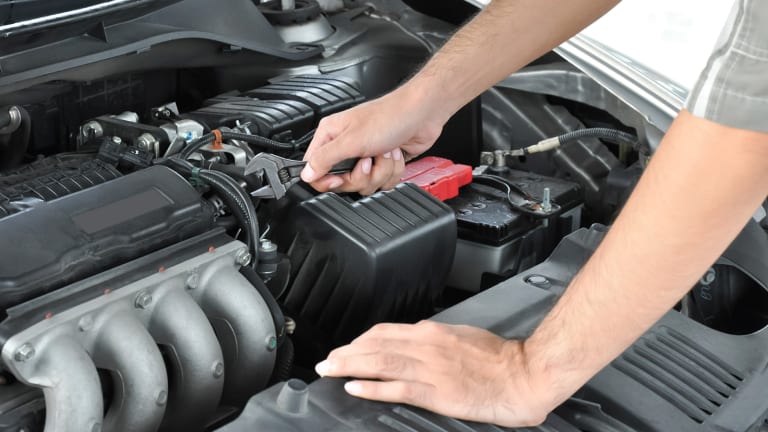Owning a car is a significant investment, and with that investment comes the responsibility of maintaining it. Proper car maintenance not only ensures the safety and reliability of your vehicle but also helps extend its lifespan and preserve its value. The good news is that you don’t need to be a car expert or spend a fortune on professional repairs to keep your car running smoothly. Simple, consistent care can save you thousands of dollars in repairs and avoid costly breakdowns. In this article, we’ll explore five essential car maintenance tips that can keep your vehicle in excellent condition and help you save a lot of money over time.
1. Regularly Check and Change Your Oil
One of the most critical aspects of car maintenance is keeping the engine lubricated and clean. Oil serves as the lifeblood of your car’s engine, ensuring that all moving parts run smoothly without excessive friction. Over time, however, engine oil breaks down, and it can become contaminated with dirt, debris, and other impurities. If left unchecked, old or dirty oil can cause severe engine damage, leading to costly repairs or even the need for a complete engine replacement.
Why is this important? By regularly checking your oil levels and changing your oil on time, you prevent engine wear and tear. Neglecting oil changes or using subpar oil can result in engine sludge buildup, overheating, or even a total engine failure.
What to do?
- Check oil levels regularly: Most cars have an oil dipstick that allows you to easily check your oil levels. If the oil is low or dirty, top it off or replace it as soon as possible.
- Change your oil every 3,000 to 7,500 miles: While older vehicles may require oil changes more frequently, newer cars can usually go longer between oil changes (consult your car’s manual for specific recommendations). Be sure to use the correct type and grade of oil for your vehicle.
Regular oil changes are a relatively inexpensive maintenance task that can save you from expensive engine repairs down the road. A well-maintained engine will also perform more efficiently, saving you money on fuel.
2. Maintain Proper Tire Pressure
Maintaining proper tire pressure is often overlooked, but it is an essential component of car maintenance that can save you money and improve your vehicle’s safety. Underinflated or overinflated tires can cause uneven wear, reduce fuel efficiency, and increase the risk of tire blowouts, leading to costly repairs and potential accidents.
Why is this important? Underinflated tires create more rolling resistance, which means the engine has to work harder to move the vehicle. This can reduce fuel efficiency and increase the likelihood of tire failure. Overinflated tires, on the other hand, can result in a harsh ride and a higher chance of tire damage from potholes or road debris.
What to do?
- Check tire pressure monthly: Tires should be checked when they are cold, as driving heats up the air inside the tires and can give an inaccurate reading. Use a tire pressure gauge to ensure the tires are inflated to the manufacturer’s recommended pressure (usually listed on a sticker inside the driver’s side door or in your vehicle’s manual).
- Rotate your tires regularly: Rotating your tires every 6,000 to 8,000 miles ensures even wear and extends their lifespan. Unevenly worn tires may need to be replaced prematurely, costing you more in the long run.
Properly inflated tires help ensure better gas mileage, improved handling, and a smoother ride. Additionally, maintaining your tires can prevent premature tire wear, which would otherwise require costly replacements.
3. Replace Air Filters Regularly
Air filters play a vital role in ensuring that your car’s engine receives the right amount of clean air to operate efficiently. A dirty or clogged air filter can restrict airflow, causing the engine to work harder, which leads to reduced fuel efficiency, sluggish acceleration, and potential engine damage.
Why is this important? A dirty air filter not only harms engine performance but also lowers fuel economy. In fact, replacing a clogged air filter can improve gas mileage by as much as 10%, according to the U.S. Department of Energy. A clean air filter ensures that the engine gets the optimal amount of air, leading to better combustion and reduced wear on engine components.
What to do?
- Inspect and replace the air filter every 12,000 to 15,000 miles: Depending on your driving conditions, you may need to replace the air filter more frequently if you frequently drive in dusty or polluted environments.
- Check for visible debris: If the filter appears dirty or clogged, it’s time for a replacement. You can often replace air filters yourself if you’re comfortable doing so, or you can have it done at an auto shop for a reasonable price.
Replacing your car’s air filter is a low-cost maintenance task that can have significant benefits for your car’s fuel economy and performance. Not only will it save you money at the gas pump, but it will also reduce the strain on your engine.
4. Maintain Your Battery
The car battery is responsible for powering your vehicle’s electrical systems and starting the engine. A dead or faulty battery is one of the leading causes of roadside breakdowns. Regularly maintaining your car’s battery can help you avoid the inconvenience of a sudden failure and prevent expensive replacements.
Why is this important? A weak or corroded battery can cause your car to start sluggishly or fail to start altogether. If left unchecked, battery issues can lead to more significant electrical problems and could even cause damage to your car’s alternator, which is much more expensive to repair or replace.
What to do?
- Check for corrosion: Inspect the battery terminals for any signs of corrosion, which can hinder the battery’s performance. If you notice any corrosion, clean it off with a mixture of baking soda and water.
- Test the battery regularly: A battery can slowly lose its ability to hold a charge over time. If your car is experiencing starting issues or if the battery is older than 3-5 years, it’s a good idea to have it tested. Many auto shops can perform this service for free.
- Keep the battery clean and secure: Ensure that the battery is firmly secured in its compartment and that the terminals are free of dirt and moisture.
Maintaining your car’s battery can prevent unexpected breakdowns and ensure that your vehicle’s electrical system continues to function properly. A new battery is relatively inexpensive, but if neglected, you may face costly electrical issues down the line.
5. Flush the Radiator and Check Coolant Levels
Your car’s radiator plays a crucial role in keeping the engine cool by circulating coolant (also known as antifreeze) throughout the engine. Over time, the coolant can become contaminated or lose its effectiveness, which can cause the engine to overheat and lead to costly damage. Regularly checking and maintaining coolant levels can help you avoid radiator issues and prevent engine overheating.
Why is this important? If your radiator is not functioning properly, the engine can overheat, potentially leading to a blown head gasket, warped engine parts, or even total engine failure. Regular coolant checks and flushes ensure that the engine stays at the right temperature, preventing expensive repairs and breakdowns.
What to do?
- Check coolant levels: Check the coolant level in your car’s reservoir regularly, especially during hot weather. If the coolant level is low, top it off with the recommended coolant type for your vehicle.
- Flush the radiator every 30,000 miles: Over time, the coolant can become contaminated with rust and debris. Flushing the radiator removes these impurities and ensures that the cooling system continues to work efficiently. Consult your car’s manual for specific recommendations on when to flush the radiator.
- Look for leaks: If you notice coolant stains under the car or smell antifreeze inside the cabin, it could be a sign of a coolant leak. Leaks should be addressed promptly to prevent further damage to the engine.
By maintaining your car’s cooling system, you can avoid costly engine repairs caused by overheating. A simple coolant flush every few years is an inexpensive way to keep your engine running at optimal temperatures.
Conclusion
Car maintenance may seem like a tedious task, but taking care of your vehicle on a regular basis can save you a significant amount of money in the long run. By following these five simple maintenance tips—checking and changing your oil, maintaining proper tire pressure, replacing air filters, keeping your battery in good shape, and flushing the radiator—you can avoid costly repairs, improve your car’s performance, and extend its lifespan.
These maintenance tasks are affordable, easy to do, and can be done either on your own or with minimal assistance from a professional mechanic. By investing a little time and effort into taking care of your car, you’ll not only save money on repairs but also ensure that your vehicle remains safe, efficient, and reliable for years to come. Regular maintenance is one of the most cost-effective ways to protect your investment and keep your car running smoothly.




Leave a Reply